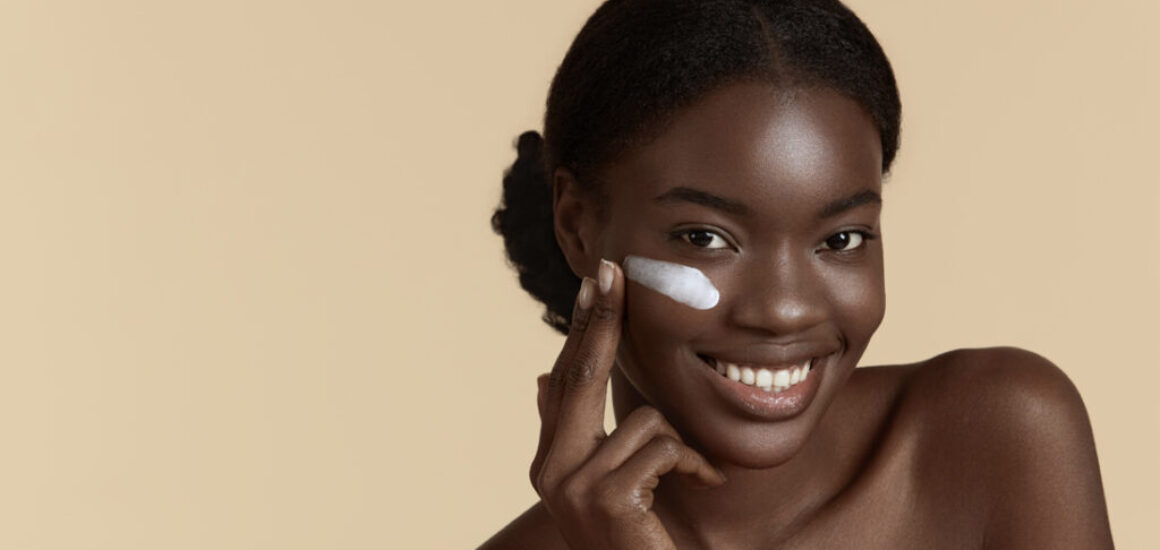The Importance of Sunscreen for Darker Skin Tones: Debunking Myths and Understanding the Benefits
Sunscreen is a vital component of any skincare routine, regardless of skin tone. However, there is a prevailing myth that people with darker skin tones don’t require sunscreen. This misconception has led to an underuse of sunscreen among African American women and could potentially result in harmful skin conditions, including skin cancer. This article aims to debunk such myths, shed light on the importance of sunscreen for darker skin tones, and provide insight into when it might be appropriate to consult a dermatologist.
The Science of Skin and Sun
Before delving into the details of sunscreen use, it’s important to understand the science of our skin and the sun. The skin color is primarily determined by a pigment called melanin, produced by cells known as melanocytes. Those with darker skin have more melanin, which provides a certain level of natural protection against the sun’s harmful ultraviolet (UV) rays. However, it’s crucial to note that this natural protection is not enough.
The UV Factor
The sun emits harmful ultraviolet (UV) rays, namely UVA and UVB. UVA rays penetrate deeply into the skin, causing premature aging, wrinkles, and potentially contributing to skin cancer. On the other hand, UVB rays are the primary cause of sunburn and play a key role in developing skin cancer.
Melanin is Not Enough
Melanin indeed provides some natural protection against UV damage. However, its protective factor varies, but it’s generally considered to be around SPF 13 for darker skin tones, which falls short of the recommended SPF 30 or higher by the American Academy of Dermatology3. Moreover, melanin is less effective at protecting against UVA rays, the type responsible for aging and potentially contributing to skin cancer.
Debunking Myths
Myth: Dark Skin Doesn’t Burn
Fact: While darker skin may not visibly burn as easily as lighter skin, it doesn’t mean it’s not damaged by UV rays. This damage accumulates over time, potentially leading to hyperpigmentation, premature aging, and increased risk of skin cancer.
Myth: Dark Skin Doesn’t Get Skin Cancer
Fact: While skin cancer is less common in African Americans, it’s often detected at later stages, leading to a worse prognosis. Additionally, certain types of skin cancer, like acral lentiginous melanoma, are more common in people with darker skin.
The Importance of Sunscreen
Sunscreen acts as a shield against harmful UV rays, reducing the risk of skin damage and skin cancer. It is essential for all skin tones, including darker ones, for several reasons.
Preventing Skin Cancer
Regular use of a broad-spectrum sunscreen can reduce the risk of developing skin cancer, including melanoma, the deadliest form of skin cancer.
Preventing Hyperpigmentation
Darker skin is more prone to hyperpigmentation, a condition that results in dark patches on the skin. Sun exposure can trigger or worsen hyperpigmentation, and using sunscreen can help prevent this.
Preventing Premature Aging
Sun damage is a leading cause of premature skin aging. By protecting your skin from the sun, you can help prevent signs of premature aging like wrinkles and age spots.
Choosing the Right Sunscreen
It’s important to choose a sunscreen that suits your skin type and lifestyle.
Broad-Spectrum Protection
Always opt for a sunscreen that offers broad-spectrum protection, which means it protects against both UVA and UVB rays.
SPF Factor
The American Academy of Dermatology recommends
using a sunscreen with an SPF of 30 or higher. This level of SPF blocks 97% of the sun’s UVB rays, providing substantial protection against sunburn and skin damage.
Sunscreen for Darker Skin
People with darker skin tones should consider sunscreens that don’t leave a white cast on the skin. Look for ‘invisible’, ‘sheer’, or ‘clear’ formulas, or sunscreens with tinted options that match your skin tone.
Water-Resistant
Especially in a hot and humid state like Florida, opt for a water-resistant sunscreen that can withstand sweat and swimming for at least 40-80 minutes. Applying sunscreen correctly is just as important as choosing the right one.
Generous Application
Apply a generous amount of sunscreen to all exposed skin. Most people don’t apply enough sunscreen, which reduces the level of protection.
Regular Reapplication
Sunscreen should be reapplied every two hours, or immediately after swimming or sweating heavily.
Daily Use
Sunscreen should be used every day, not just on sunny days. UV rays can penetrate clouds and cause skin damage even on overcast days.
When to See a Dermatologist
While a good skincare routine with regular sunscreen use is essential, it’s equally important to know when to consult a dermatologist.
Regular Skin Checks
Regular skin self-exams can help detect early signs of skin cancer. If you notice any new or changing spots on your skin, or anything that doesn’t seem right, see a dermatologist.
Persistent Skin Issues
If you have persistent skin issues, such as prolonged hyperpigmentation, stubborn acne, or other skin conditions, it might be time to consult a dermatologist.
Personalized Skincare Advice
A dermatologist can provide personalized skincare advice based on your skin type and lifestyle, including recommending suitable sunscreen products.
Conclusion
The importance of sunscreen for darker skin tones cannot be overstated. Despite the natural protection provided by melanin, people with darker skin are still susceptible to sun damage, skin aging, and skin cancer. By debunking myths, understanding the benefits of sunscreen, and knowing when to consult a dermatologist, African American women can protect their skin and maintain its health and vitality for years to come.
References/Footnotes
Rodrigues, M., Kosmadaki, M. G., & Katsambas, A. D. (2020). Skin aging in different ethnicities: An update and future options. Clinics in dermatology, 38(2), 223-229.
Poljsak, B., Dahmane, R., & Godic, A. (2013). Intrinsic skin aging: The role of oxidative stress. Acta Dermatovenerol Alp Pannonica Adriat, 22(2), 33-36.
Come in and experience the divine difference!
Welcome to Divine Dermatology in sunny St. Petersburg, Florida – a skincare sanctuary where you experience the pinnacle of dermatological care with Dr. Carol Sims-Robertson. Her sterling credentials include serving as Chief Resident and Clinical Instructor at Wayne State University’s Department of Dermatology and Syphilology. Certified by the National Board of Medical Examiners and licensed in four states, Dr. Sims brings an unmatched breadth of knowledge and experience to Divine Dermatology.
Divine Dermatology is defined not just by medical expertise but also by a deeply ingrained respect for multicultural differences in skincare, informed by her own diverse heritage and extensive travels. Dr. Sims consistently achieves remarkable results, deftly diagnosing complex cases and tailoring effective treatments for an array of hair, nail, and skin conditions. Divine Dermatology isn’t just about expert skincare—it’s about a uniquely sensitive and personalized approach that respects every patient’s individuality. Discover the divine difference with us.
We at Divine Dermatology encourage everyone to get their yearly skin checks. For the month of May, we are offering FREE skin checks, click here for more information.




